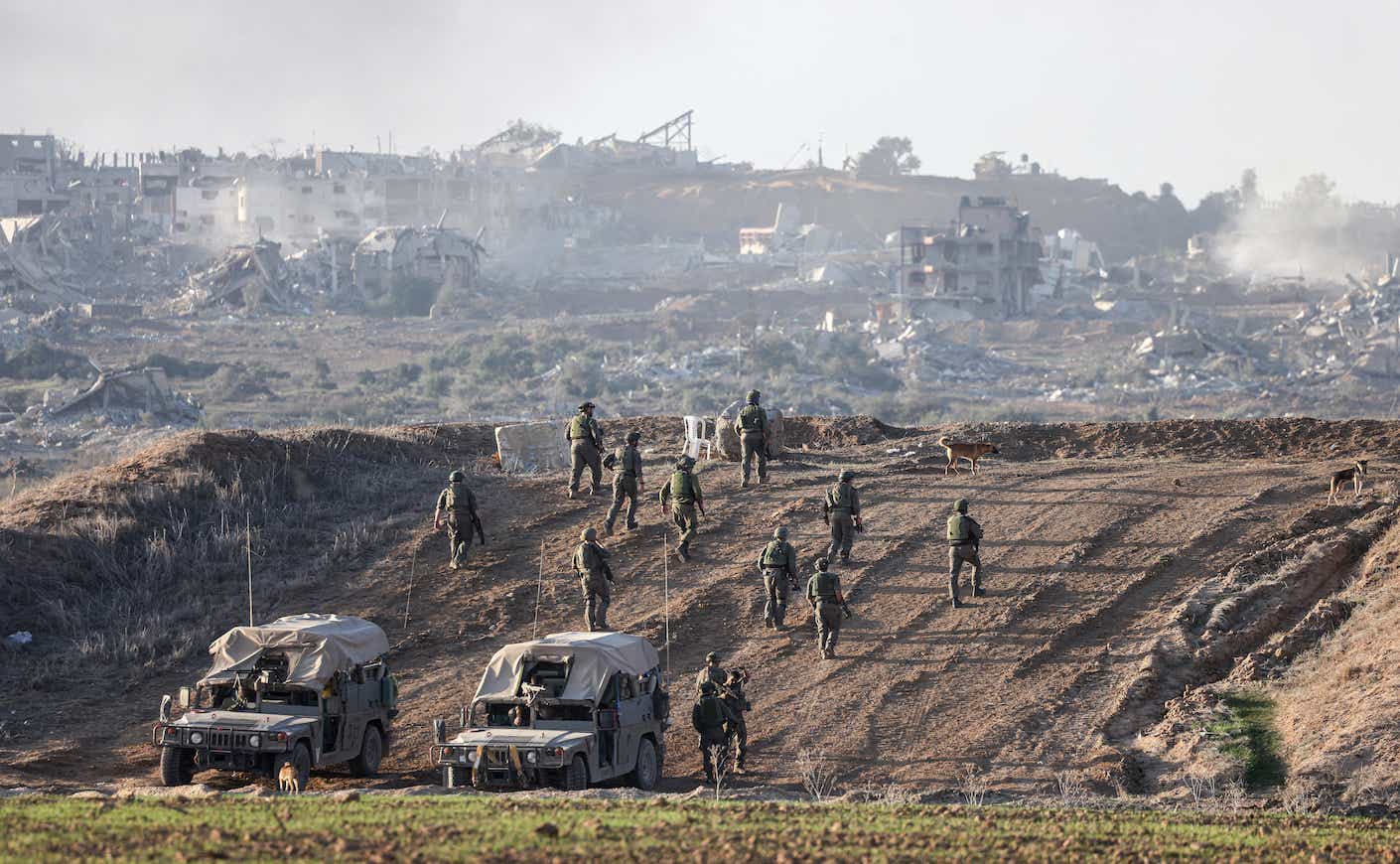In the months since Hamas' Oct. 7 attack on Israel and Israel's subsequent attack on Gaza, the conflict has gone on to reach historically unprecedented heights. As of early January, over 20,000 Palestinian civilians are dead, according to the Gaza Health Ministry (which is, it's worth noting, an agency within a government controlled by Hamas), and an estimated 130 Israeli civilians are still held hostage by Hamas. Alarmingly, there's still no end in sight to the ongoing devastation.
In response to this crisis, Katie Couric Media has embarked upon a comprehensive, expert-driven effort to better understand what's happening in Gaza and Israel. Katie's spoken to army generals, psychoanalysts, journalists, civilians, and more — all of whom have offered their unique and essential perspectives on this longstanding conflict and active humanitarian nightmare.
Keeping up with it all can be overwhelming, and you can't fathom the breadth of an outlet's efforts from one article, so we're compiling our coverage all in one place to help you stay abreast easily. These are all of the conversations Katie and our editors have had so far about the Israel-Hamas war. This page will be updated with future conversations.
Peter Beinart of Jewish Currents discusses the shift in American sentiment over Israel-Palestine
The conflict between Israel and Palestine has been ongoing for decades — so why is American sentiment seemingly shifting against Israel and in favor of Palestine now? Peter Beinart, editor-at-large of Jewish Currents, a magazine "committed to the rich tradition of thought, activism, and culture of the Jewish left," talks with Katie about why the conflict has changed his own mind about Zionism.
Richard Haass, former president of the Council on Foreign Relations, discusses what's next for the Israel-Hamas conflict
What are the implications of a long-lasting occupation and all-out siege, of the likes of what Israel is doing in Gaza, right now? Richard Haass, former president of the Council on Foreign Relations, discusses this question with Katie. "Israel had every right to respond," Haass said. "But what makes a war just is not just the rationale; it's the way the war is carried out."
Katie speaks to the family of the 4-year-old hostage released by Hamas
On Oct. 7, then-3-year-old Abigail Mor Edan underwent unthinkable trauma when Hamas militants killed her parents. Though initially pinned beneath her father’s body (both parents were killed in the attack), Abigail fled to a neighbor’s home, where she was then abducted by Hamas. After being held hostage for 50 days — and spending her fourth birthday in captivity — Abigail was released in early December during a brief ceasefire. Katie spoke with Abigail's family members to hear how the little girl is doing now.
Katie talks with a psychoanalyst about the severe mental toll of the Oct. 7 attacks
Dr. Ofrit Shapira-Berman is a psychoanalyst and a professor at Hebrew University in Jerusalem. She’s been working very closely with the families of those missing and killed in Israel on Oct. 7. Katie spoke to her about how the returning hostages are doing, what’s being done to help the families with this sort of reintroduction period, and how the healing process is unfolding.
Could Israel have prevented the Oct. 7 attack? Katie speaks with two New York Times journalists behind the investigation that answers this question
A New York Times report reveals that Israeli intelligence had direct access to Hamas’ Oct. 7 attack plans — contained inside a 40-page document the Israelis labeled “Jericho Wall” — for more than a year before it took place. Even more devastating is that the NYT says Hamas followed the blueprint “with shocking precision” on Oct. 7. So why didn’t Israel act on this information? Katie spoke with Ronen Bergman and Adam Goldman, the reporters behind this stunning investigation, to get answers to this critical question.
Zack Beauchamp, senior correspondent at Vox, explains why "Israel must do something — but what it's doing now is indefensible"
A few weeks after the Oct. 7 attack, Zack Beauchamp, a senior correspondent at Vox, wrote a viral article about what Israel should do to defeat Hamas. Katie spoke to Beauchamp about the compelling argument he laid out in that essay, which could, if acted upon, offer a way out of this crisis.
General David Petraeus talks with Katie about what’s ahead in the Israel-Hamas War
When it comes to the chaos of wartime, expert insight is crucial — which is why Katie recently turned to General David H. Petraeus to make sense of what’s going on in the world right now. "Israel has to lay out what their vision of the future is for Palestinians," Gen. Petraeus said. "There has to be that kind of vision provided to give hope, and to make Palestinians understand that this terrible damage and destruction is going to lead to something better for them and their families."
Ambassador Dennis Ross on why Israel faces an “excruciating dilemma” in war with Hamas
Katie marked the one-month anniversary of the Oct. 7 attack by calling up Dennis Ross, an American diplomat and author with decades of experience in peace-brokering efforts in the Middle East, including service under the presidential administrations of Bill Clinton and George H.W. Bush. In conversation with Katie, Ross dives deep into this ongoing conflict. He explains why he thinks Palestinians are winning the war of cultural opinion, and what a peaceful future in the region could possibly look like.
Why are colleges struggling to respond to the Israel-Hamas war?
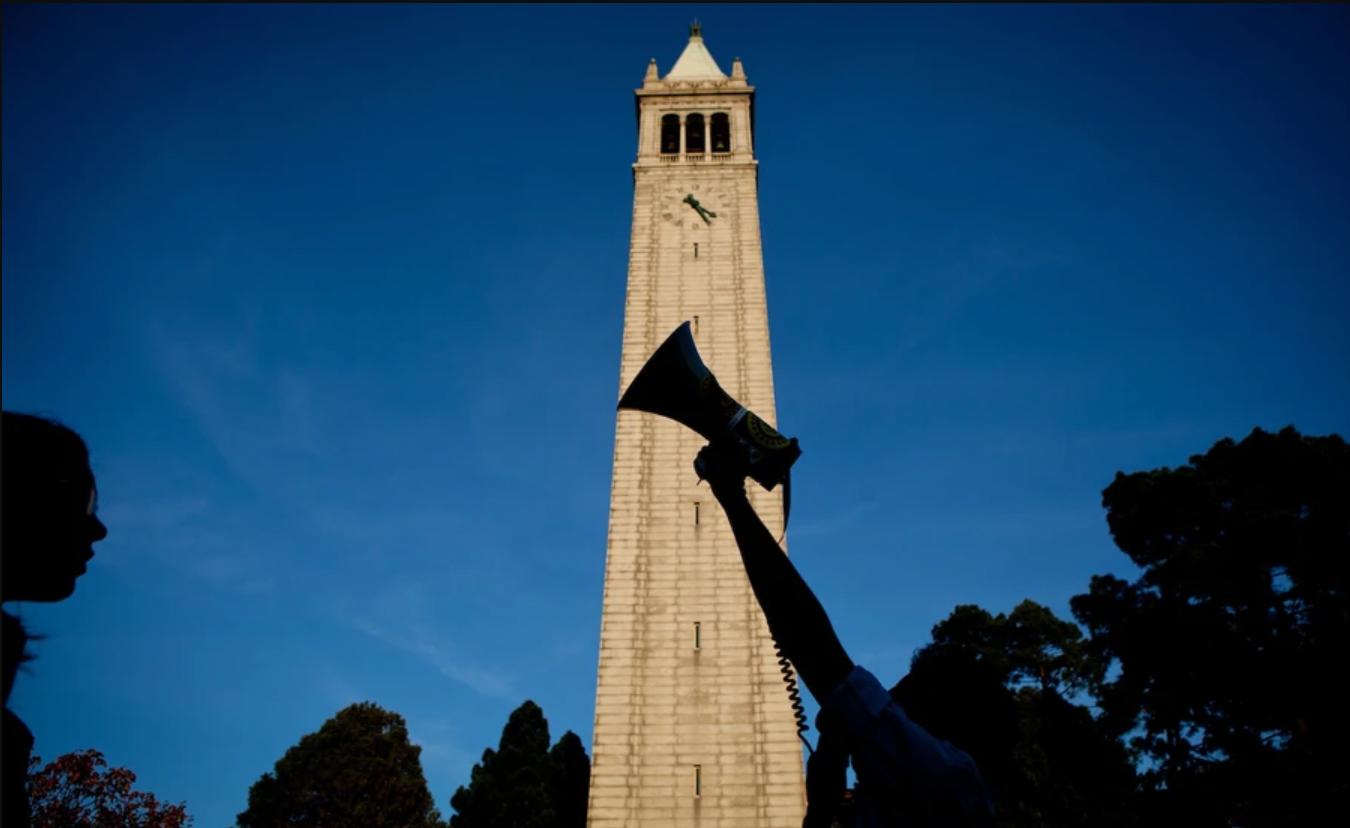
American academic institutions are still grappling with how to respond to the war between Israel and Hamas as the conflict reverberates across campuses. Wealthy donors have essentially been pitted against college presidents, and students against staff. Some university responses (or lack thereof) were met with or contradicted protests from activist groups on campus, deepening a rift between students and faculty that in many cases, already existed.
Israeli hostage's mother tells Katie "I've been in a nightmare"
Dr. Ayelet Levy Shachar's daughter, Naama, was taken hostage by Hamas on October 7. Nearly three months later, she spoke to Katie about what it feels like to still not have her daughter back in her arms. "I've been in a nightmare," she said. "Until Naama is back, I can never feel that enough is being done on my part."
What life is like for citizens in Gaza right now
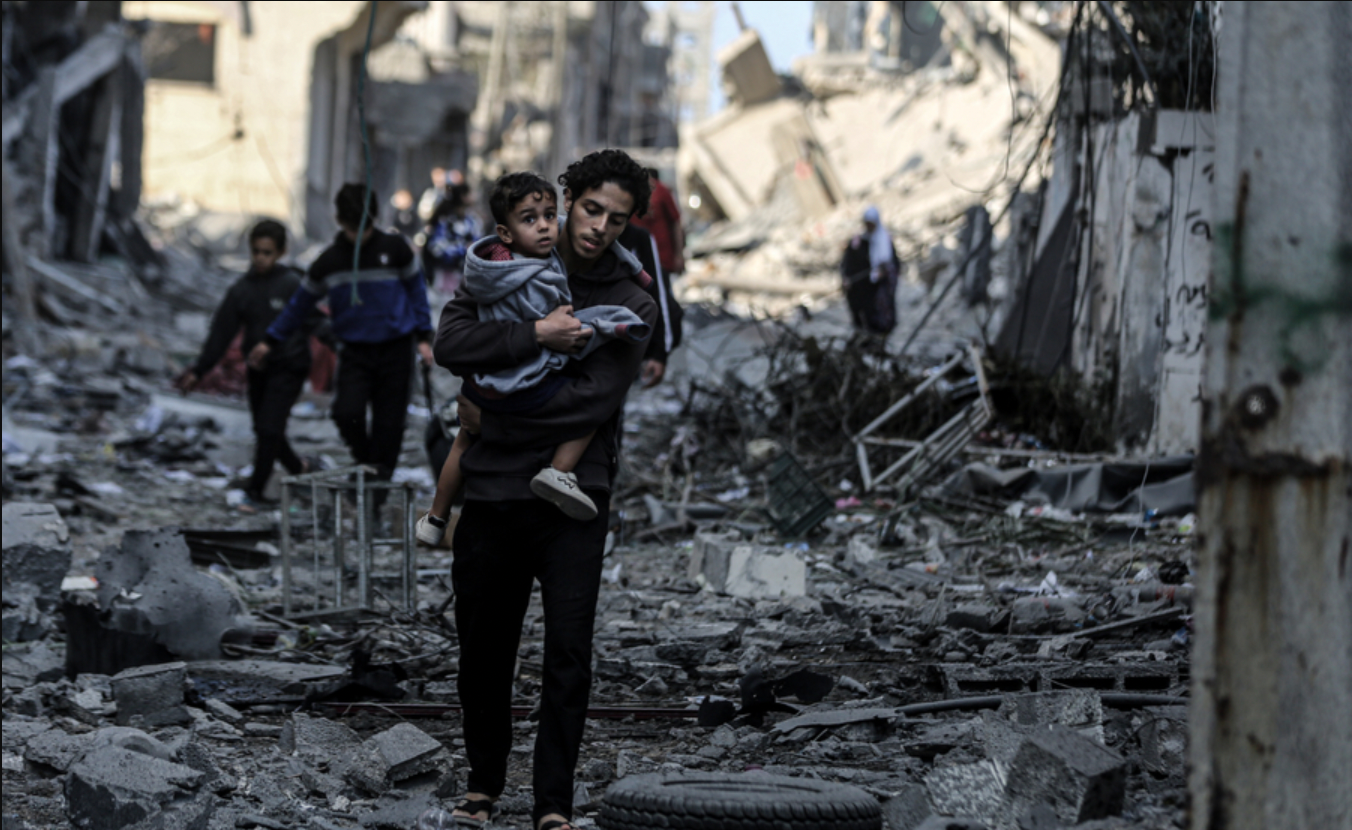
What is it like to be living in Gaza right now? For most citizens of America, this question might feel impossible to answer, or even to begin to imagine. For that reason, it's essential to platform the voices who can provide specificity and color to that experience.
Basim Elkarra is the executive director of The Council on American-Islamic Relations (CAIR), a nonprofit and America’s largest Islamic civil liberties group. Elkarra, a Palestinian himself, talks about how his family in Gaza is faring at this moment, and why conditions have "never been this bad."
Dr. Noam Weissman, Executive Vice President of OpenDor Media, explains why everyone suffers from this war: "Extremism breeds more extremism"
Dr. Noam Weissman is the executive vice president of OpenDor Media, and the host of a podcast called Unpacking Israeli History. In conversation with Katie, he provides a fascinating crash course on the modern history of Israel, as well as a nuanced perspective on how Israel's current government leaders came into power.
Op-Ed: How wartime misinformation happens — and why it’s so detrimental
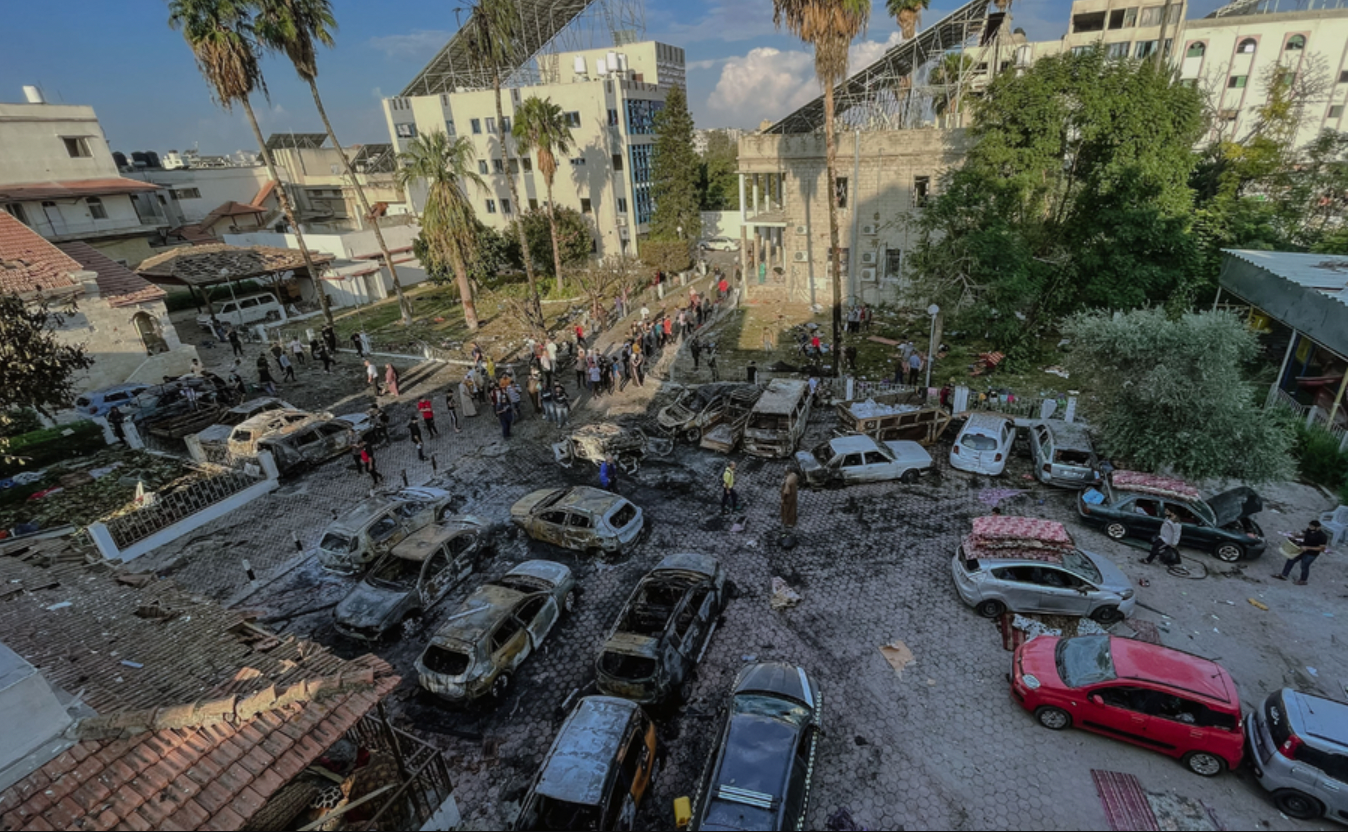
The tragedies unfolding in the Middle East now are already harrowing, but they’re made even harder when the “news” coming out of this conflict can’t be trusted, and the problematic issue of misinformation has been running rampant. In an op-ed for Katie Couric Media, Rex Chatterjee, a lawyer and environmental, social, and governance strategist, unpacks this in a thoughtful post from his Substack, Business Thoughts.
Who runs Hamas and what do they want?
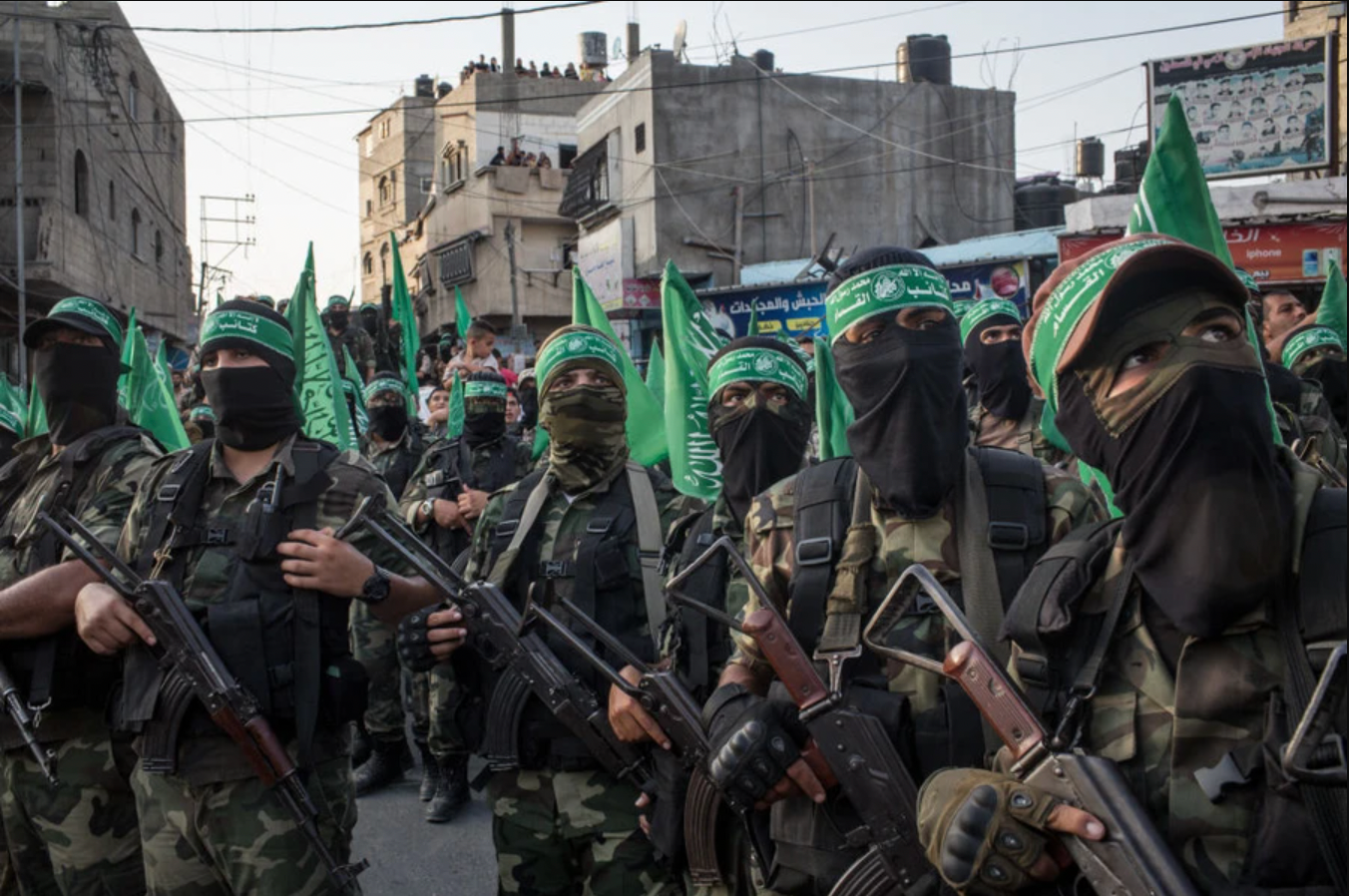
Hamas has been at the forefront of current events ever since it launched its Oct. 7 attack on southern Israel, triggering a new war between Israel and the militant group. “Hamas has only one agenda, to destroy Israel and to murder Jews,” Secretary of State Antony Blinken said at a press conference in Israel following the initial attack.
But Hamas is much more than this war. As the conflict rages on, many are learning the backstory of this group and their tension with Israel for the first time.
The dangers of documenting war in the Middle East
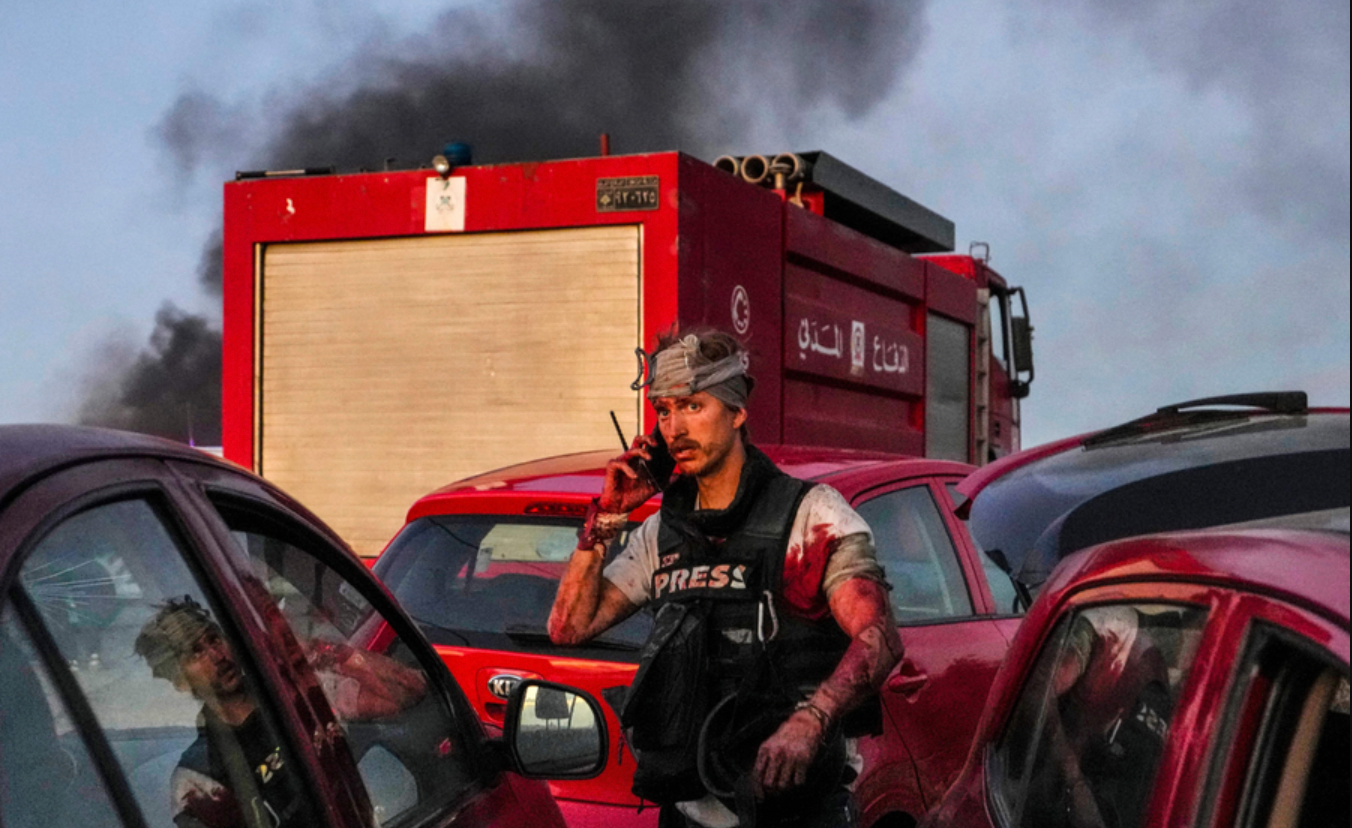
The reason we know what’s happening in Israel and Gaza is the work of courageous journalists who are consistently putting their own lives at risk. To learn more about the heavy burden on members of the media in the Middle East, we caught up with Lucy Westcott, the director of CPJ’s Emergencies Department.
"Local journalists in Gaza in particular are bearing the brunt of the violence from this war," Westcott said. "They’re living through the conflict and trying to protect themselves and their families, all while continuing to report the news."
What’s motivating the swell of pro-Palestinian protests on college campuses?
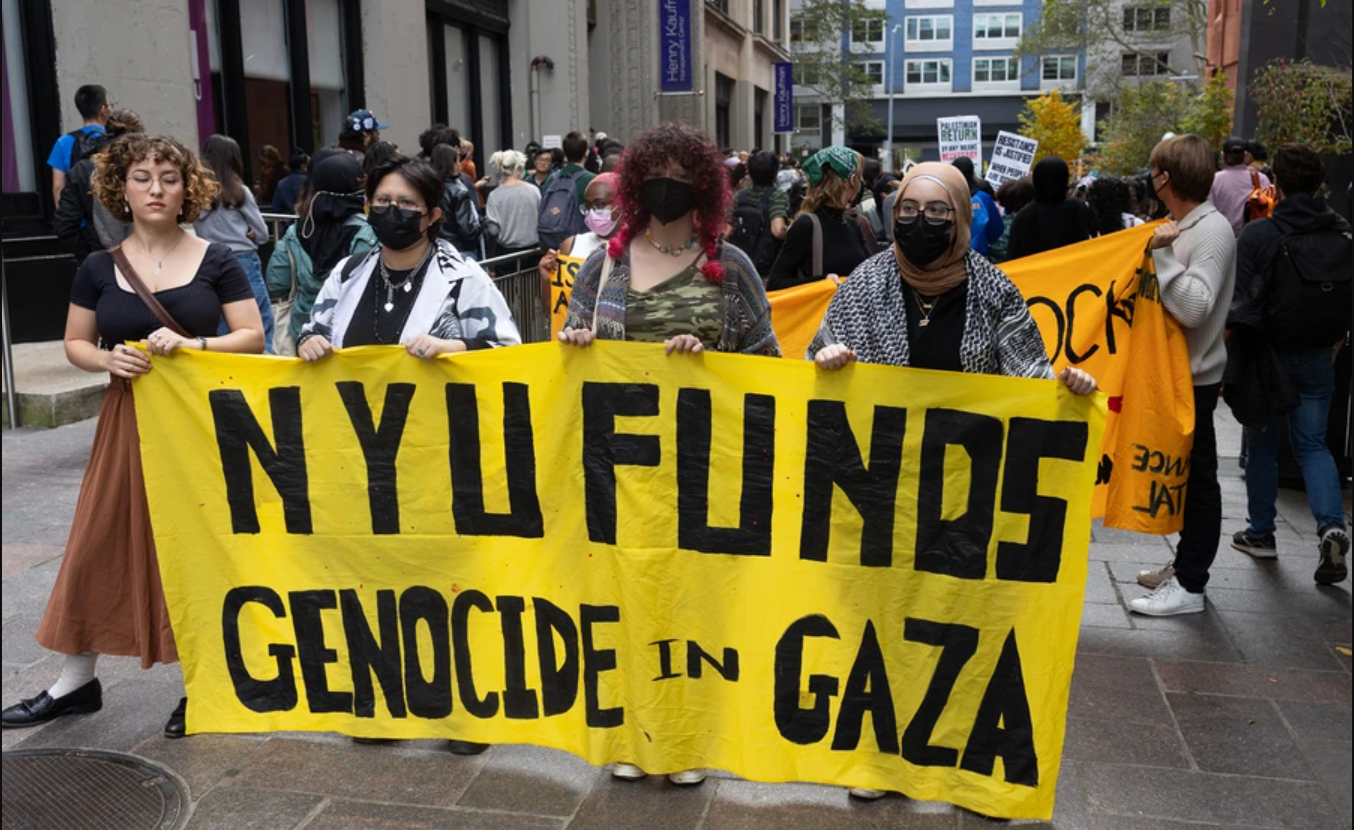
Since Oct. 7, when the brutal Israel-Hamas War erupted, students have rallied at Ivy League institutions, community colleges, and big public universities in every corner of the U.S. — often in support of the Palestinian people and a ceasefire. So what’s behind the impassioned stance of these outspoken students — and how are their opinions shaking up the political status quo? Let’s dive into the discourse.
Op-Ed: "An open letter to my children witnessing the war in Israel"
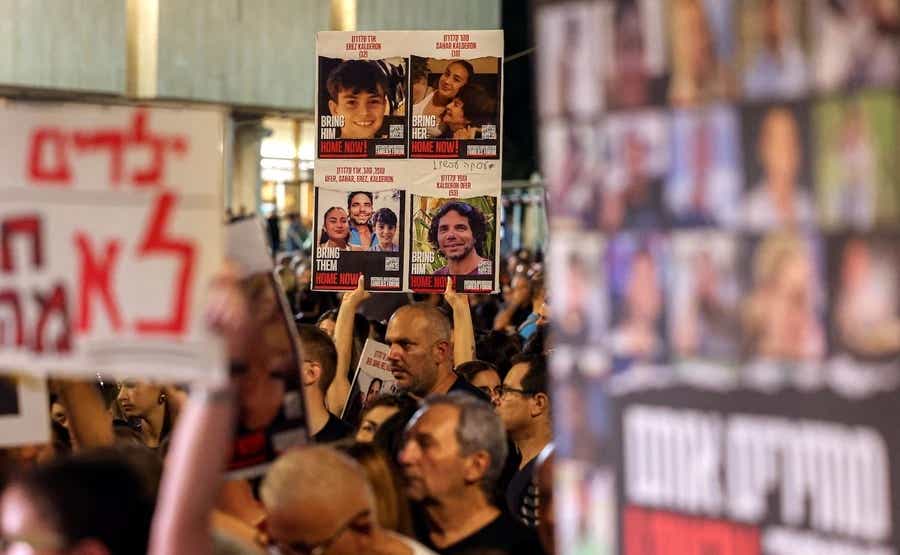
Abbey Onn has five family members taken hostage by Hamas. Two were killed and two have been released, but one remains in captivity In this touching open letter to her children, Onn grapples with the overwhelming pain of the current moment, while also working to offer some sliver of forward motion and hope, at a time when hope might feel impossible.
"I may not be the same mom I was on October 6, but despite the heartbreak, I have found my words," Onn writes. "Aviv, Maya, and Yuval: We should live big, beautiful, unapologetic lives full of the traditions that have been passed to us from our families in Russia, Poland, the United States, and Israel."
Activists call for more action against alleged Oct. 7 sexual crimes
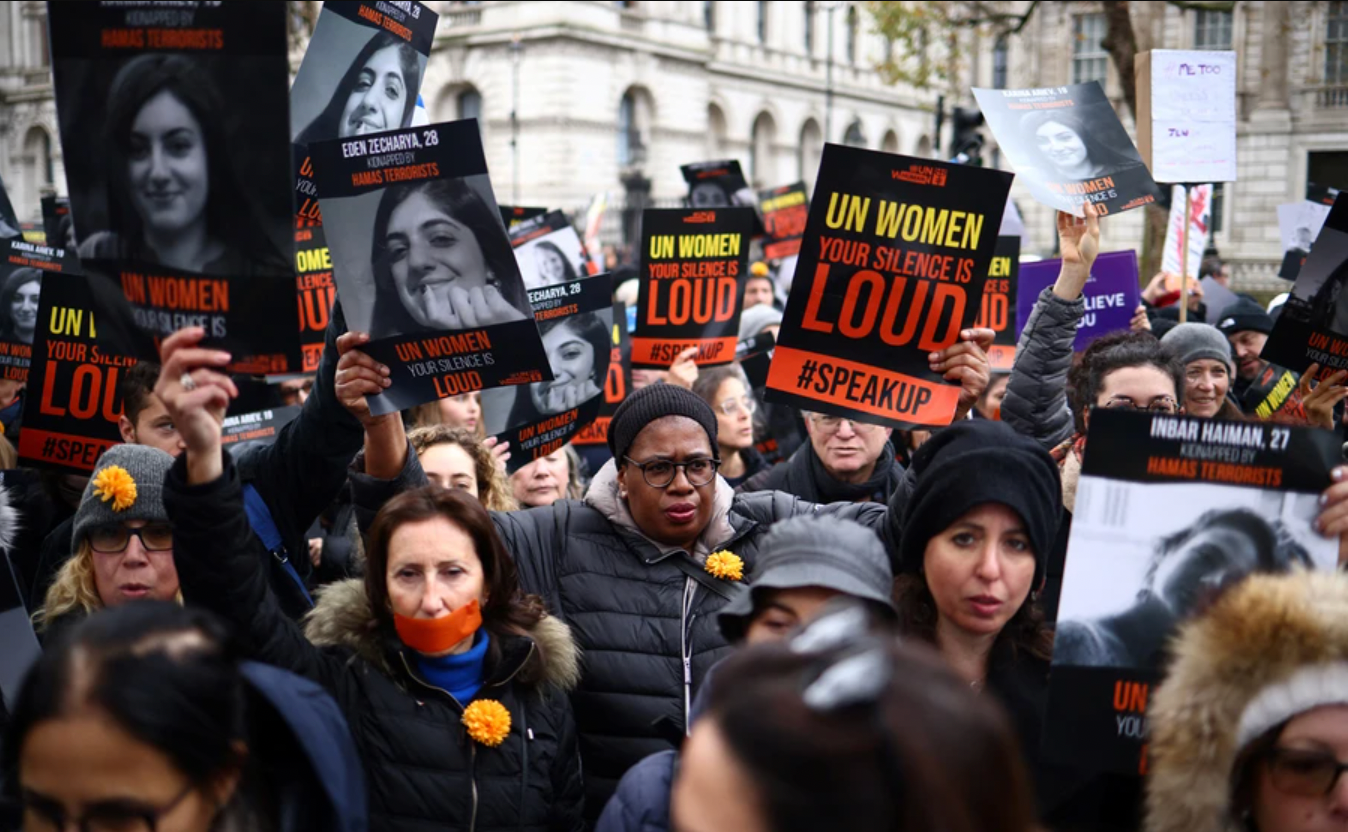
Israeli officials and prominent Jewish leaders are accusing women’s rights organizations of turning the other way in the face of reports that Hamas committed sexual crimes during their attack on Israel. “Silence is complicity, and in the face of terror, we cannot be quiet,” Sheryl Sandberg said at a U.N. panel hosted by Israel. The Lean In founder was joined by New York Senator Kirsten Gillibrand, Israel’s ambassador to the U.N. Gilad Erdan, activists, and Israeli security forces, who described the scope of the alleged sexual abuse.







